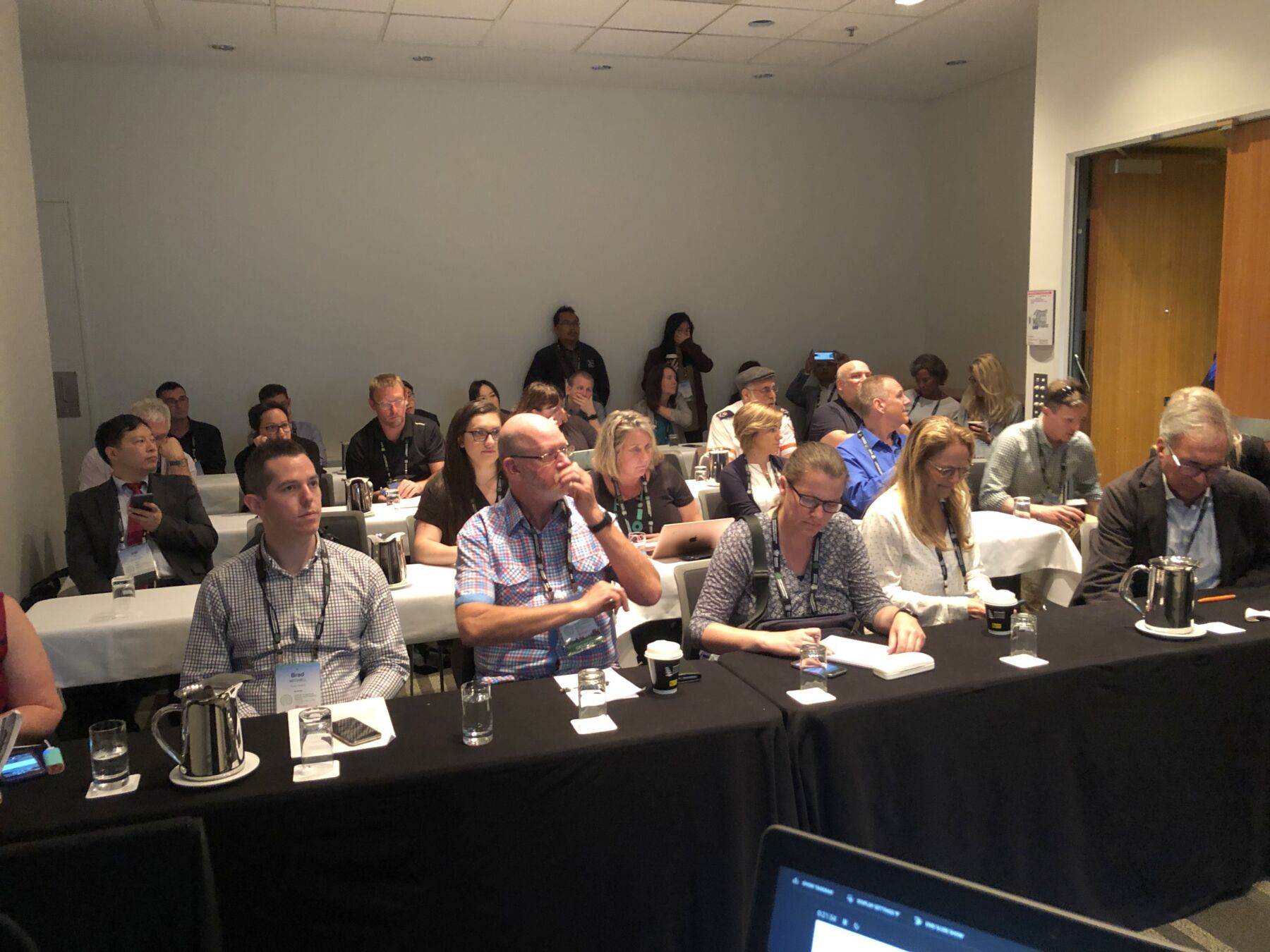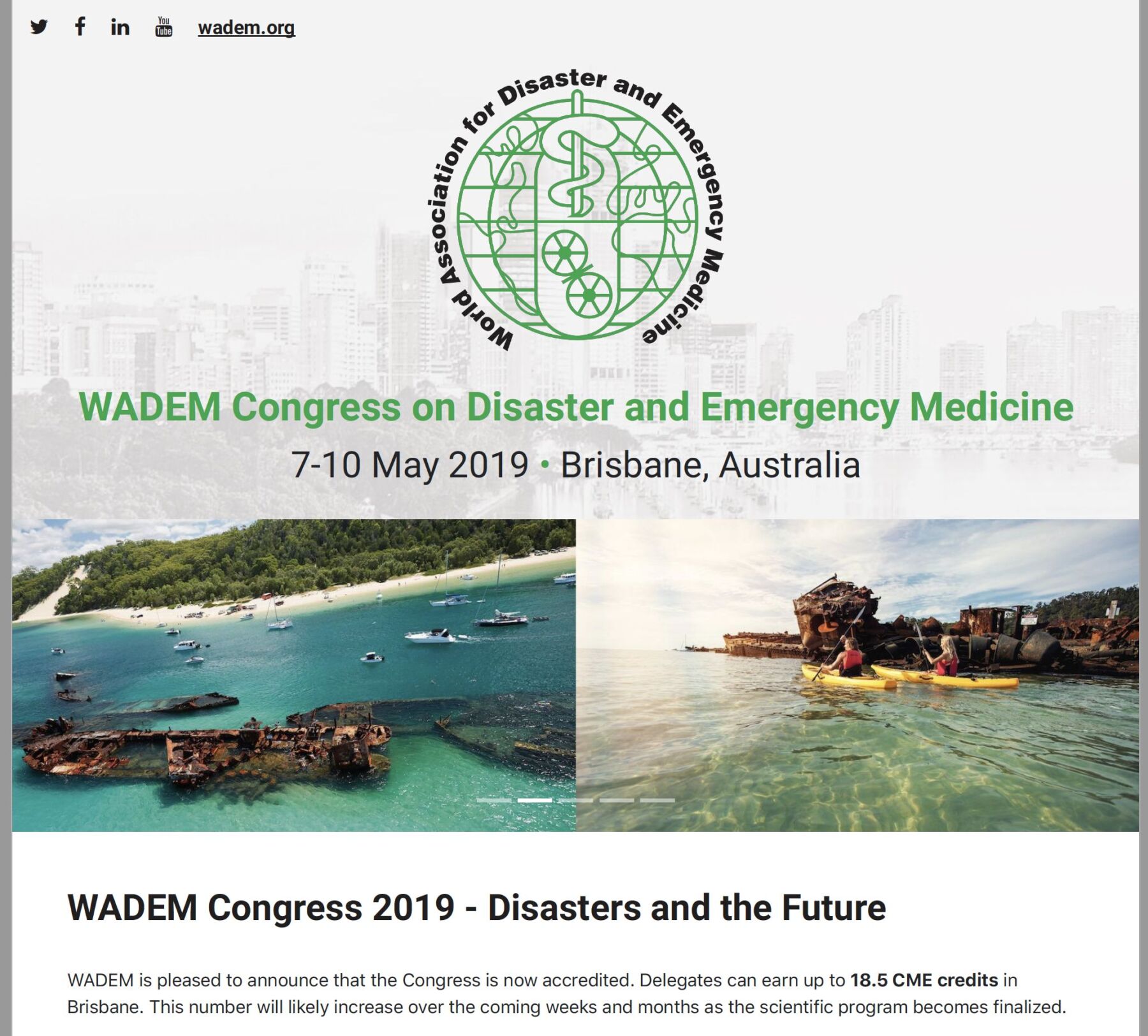WADED Conference, Melbourne, Australia – Oral presentation of paper on ‘Developing Disaster Medicine Training for low and middle-income countries.’
Disaster Medicine for India & Nepal – A model for developing countries
Dr Peter Pate1l, Prof James Kingsland2, Prof Virginia Murray3, Dr James O’Brien1, Dr Robert Russell4, Dr Annapurna Sen3, Prof T V Ramakrishan5, Dr Tausif Thangalwadi6
Summary of abstract presented at the conference.
Both India and Nepal are prone to wide range of natural and man-made disasters. Almost 85% of India’s area is vulnerable to one or multiple hazard and more than 80 percent of the total population of Nepal is at risk of natural hazards. In terms of the number of people affected and reported disastrous events, India is in top the 10 and Nepal is in the top 20 globally.
A review of various responses to disasters in South Asia has identified key gap in response and recovery. India and most developing countries do not have trained clinical capacity for managing health impacts from various disasters. There is significant body of evidence from South Asia which shows that large parts of the population suffer injuries, diseases, disabilities, psychosocial and other health-related problems from disasters. Many can be avoided or reduced by introducing trained ‘disaster medicine’ clinical capacity in these countries.
Over the last two decades India and Nepal have taken steps to establish their respective National Disaster Management organisations which provides essential disaster management response. However, key gap still remains in trained clinical capacity for managing impacts from various disasters. Our review of the region has shown that large parts of the population suffer injuries, diseases, disabilities, psychosocial and other health-related problems from disasters. Many can be avoided or reduced by introducing trained ‘disaster medicine’ clinical capacity in these countries.
Independent published data and work undertaken by lead author in various disasters in India and Nepal since 1993 forms the basis of establishing the Faculty of Disaster Medicine for South Asia. The Faculty of Disaster Medicine – India and Nepal (FDMIN) was launched from Pune in March 2015. This initiative is supported by National Association of Primary Care (UK), Public Health England, Faculty of Pre-hospital Care of Royal College of Surgeons – Edinburgh and CRIMEDIM (Novara) – Italy. FDMIN has international expert advisors and has outlined 16 modules training curriculum for health care professionals. FDMIN currently has partnerships for teaching disaster medicine programme with 3 medical universities and 12 major health care providers. Six pilot training programmes have been conducted in Pune, Delhi, Chennai and Kochi.
1. Faculty of Disaster Medicine, Birmingham, England.
2. National Association of Primary Care, London, England.
3. Public Health England, England.
4. Faculty of Pre-hospital Care, Royal College of Surgeons, Edinburgh, Scotland.
5. Sri Ramachandra Medical College and Research Institute, Chennai, India
6. Premier Hospital, Hyderabad, India.


